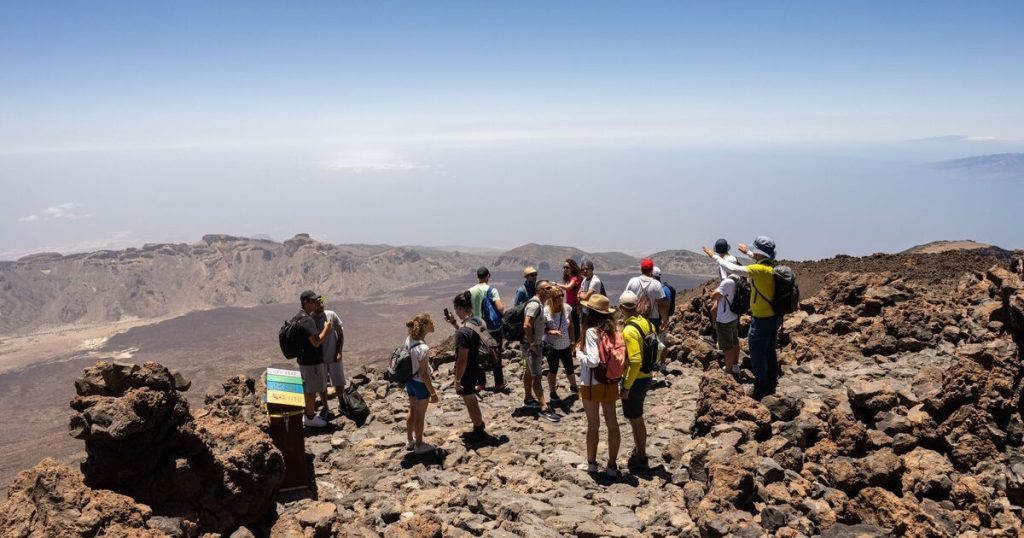Tourists visiting one of Spain’s most iconic natural landmarks will soon face new rates and restrictions as Tenerifay authorities take critical action to tackle overtourism and environmental degradation in Teide National Park.
Starting in 2026, the new eco tax will apply to all non-resident visitors entering the park, with revenues directly funding conservation projects. The announcement was made Monday by Rosa Davila, president of Tenerifecabuild, amid a local discussion focusing on sustainable tourism and environmental resilience.
The move has raised concerns over ecological tensions caused by mass tourism in the Canary Islands, particularly the use of illegal roads, pollution and erosion, particularly in protected zones.
Teide National Park, home to Spain’s highest peak and a UNESCO World Heritage Site, attracts millions of visitors each year and is now at the heart of a widespread crackdown.
Private vehicles access to the park will be significantly restricted to reduce emissions and overcrowding. Instead, an electric shuttle bus will be introduced. This is part of a new transportation system aimed at reducing vehicle congestion.
Similar measures have already been rolled out in MASCA, another sensitive area where visitors need to pay and use designated transport services.
The updated park access model will deploy additional environmental personnel and introduce new park management plans to better regulate the flow of visitors.
A new agreement with Tenerife’s transportation sector will reduce the size of tourist buses in areas such as Anaga and Masca, and one-way transport systems will help prevent environmental bottlenecks.
Davila also confirmed that stricter penalties are ongoing for damaging natural areas. Legal reforms will work with Spanish environmental police, local police forces and forestry officials to strengthen enforcement.
A series of new environmental investments have also been revealed later this year, including the reopening of the Altavista Revuge and the new solar-powered cabin for the 2026 Teide Cable Car.
Tenerife’s 2024 environmental budget rose 229 million euros (£164 million) from last year, up 27%. The project aims to restore marine biodiversity in collaboration with the Spanish Institute of Oceanography through Seagrass Meadow Revival, targeting degraded areas such as La Rambla de Castro, La Caleta and Montana Roja.
“These measures represent a turning point in the way tourism is managed on the island,” President Davila said. “Our priority is to preserve the natural beauty of Tenerife for future generations. That means visitors need to play a role in protecting it.”


